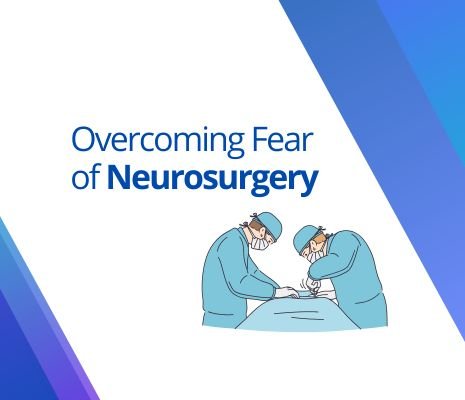The word “neurosurgery” can sound scary. For many, it immediately brings thoughts of high risk, long recovery, or fear of the unknown. It’s completely natural to feel anxious when you or a loved one is told surgery is needed for the brain or spine.
But the truth is — modern neurosurgery has come a long way, and most procedures today are far safer, more precise, and faster to recover from than ever before.
Let’s understand a few facts that can help you replace fear with confidence and clarity.
1. Neurosurgery Doesn’t Always Mean Major Open Surgery
Many people imagine large cuts and long hospital stays.
But today, neurosurgeons often use minimally invasive techniques — meaning smaller cuts, less pain, and faster recovery. With the help of microscopes, endoscopes, and advanced imaging, surgeons can treat complex conditions through very small openings.
For example, some spine surgeries are done through an incision less than an inch long!
2. Technology Has Made Surgery Safer
Modern neurosurgery uses high-precision tools like neuronavigation (a GPS for the brain), intraoperative monitoring, and advanced imaging.
These technologies help the surgeon see and operate with millimeter-level accuracy, protecting healthy brain or nerve tissue.
This makes surgery not only more effective but also much safer than in the past.
3. Every Step Is Carefully Planned
Before the operation, you’ll undergo scans, tests, and counselling to ensure the safest approach is chosen.
Your surgeon will explain the plan — what will be done, how long it will take, what to expect after surgery, and how recovery will look.
Knowing these details often helps reduce anxiety and builds trust.
4. Pain and Recovery Are Well Managed
Modern anesthesia and pain-control methods ensure you are comfortable during and after surgery.
Most patients are encouraged to sit, walk, and eat sooner than they expect.
For many spine surgeries, patients even return home in just a few days.
5. You’re Never Alone in the Journey
Neurosurgery is not just about the operation — it’s a team effort.
Your neurosurgeon, anesthetist, physiotherapist, and nurses all work together to help you heal faster.
Follow-up care, rehabilitation, and simple exercises play a big role in complete recovery.
6. Ask Questions — Knowledge Reduces Fear
If you’re unsure or scared, talk openly with your doctor. Ask:
- What exactly is the problem?
- Why is surgery needed?
- What are the benefits and risks?
- What will recovery be like?
A good surgeon will take time to explain and help you make the right decision with confidence.
Feeling afraid before neurosurgery is completely normal — but remember, you’re in the hands of experts trained to handle the most delicate parts of the body with precision and care.
Thanks to modern technology and experienced neurosurgeons, thousands of people successfully undergo brain and spine surgeries every year and return to normal, active lives.
Trust the process, stay positive, and focus on recovery — because today, neurosurgery means healing with hope, not fear.















